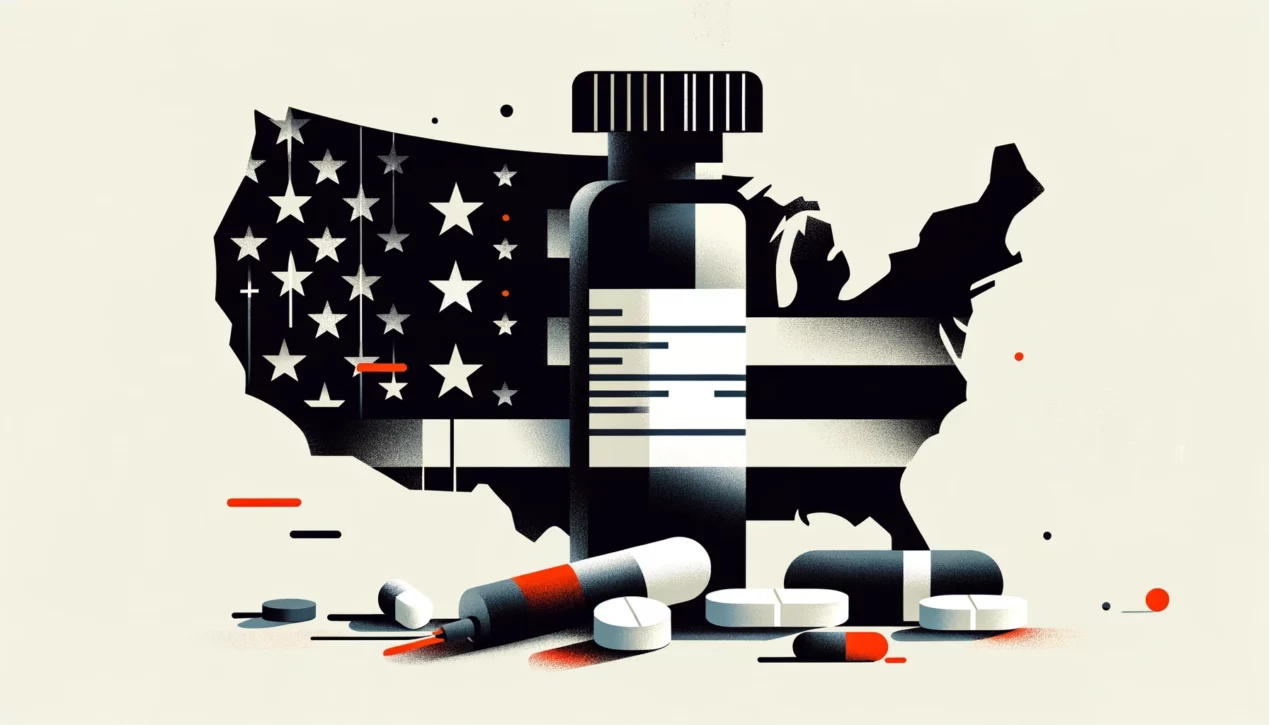Since 1999, the United States has grappled with a devastating drug overdose crisis, resulting in over 1 million deaths. The ripple effects of this crisis extend beyond the immediate loss, profoundly impacting the bereaved—families, friends, and communities. A recent study, published in JAMA Health Forum, sheds light on the scope of personal overdose loss in the US and its implications for public policy.
The Study
A team of researchers, led by Dr. Alene Kennedy-Hendricks from Johns Hopkins Bloomberg School of Public Health, conducted a cross-sectional study to quantify the extent of personal overdose loss and its impact on policy perceptions. Using data from the COVID-19 and Life Stressors Impact on Mental Health and Well-Being (CLIMB) study, the researchers surveyed 2,326 US adults between March and April 2023.
Key Findings
- Prevalence of Overdose Loss:
- 32% of respondents reported knowing someone who died from a drug overdose, equating to an estimated 82.7 million US adults.
- 18.9% had lost a family member or close friend, translating to 48.9 million US adults.
- Demographic Disparities:
- Overdose loss was more prevalent among adults aged 45-54 years (37.1%) and 55-64 years (36.7%).
- Higher prevalence was noted among White adults (36.4%) and those with lower household incomes (39.9% for incomes <$30,000).
- Policy Implications:
- Those who experienced personal overdose loss were more likely to view addiction as a crucial policy issue. Specifically, they had 1.37 times greater odds of considering addiction a very or extremely important policy priority.
Political Neutrality of Overdose Loss
Interestingly, the experience of personal overdose loss did not significantly differ across political affiliations:
- Democrats: 29.0%
- Republicans: 33.0%
- Independents or None: 34.2%
This bipartisan impact underscores the widespread nature of the crisis, transcending political divides.
Sociodemographic Factors
The study highlighted several factors associated with higher rates of personal overdose loss:
- Economic Vulnerability: Higher among those enrolled in Medicaid (51.3%) and those reporting worsened financial situations (41.3%).
- Geographic Variations: More prevalent in nonmetropolitan areas (39.6%) and specific regions like New England (44.5%).
Broader Implications
The findings suggest that personal overdose loss could be a unifying factor for policy advocacy. Mobilizing the large group of bereaved individuals could drive significant policy changes aimed at tackling the overdose crisis. Previous research indicates that personal stories from affected individuals can enhance public receptiveness to health-oriented drug policies, potentially reducing stigma and fostering support for comprehensive solutions.
The overdose crisis in the US is not just a health issue but a profound societal challenge affecting millions. The study by Kennedy-Hendricks et al. reveals the extensive reach of this crisis and highlights the importance of addressing addiction as a critical public policy issue. With the right advocacy and policy measures, leveraging the experiences of the bereaved could pave the way for substantial progress in combating the overdose epidemic.
Call to Action
It is imperative for policymakers, healthcare providers, and communities to recognize the widespread impact of overdose deaths and work collaboratively towards effective solutions. Addressing this crisis requires a multifaceted approach, including prevention, treatment, and support for those affected by personal overdose loss.
For more detailed insights and access to the full study, visit the JAMA Health Forum.




